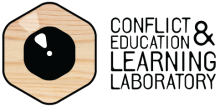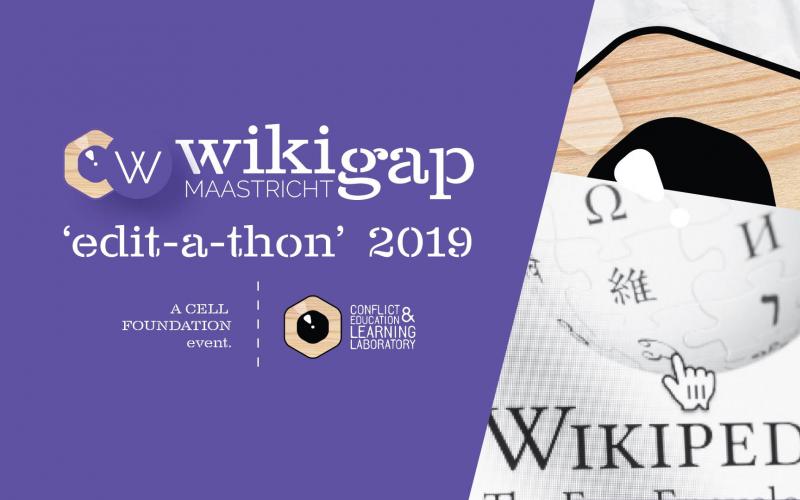On 8 March 2019, in alignment with the UN’s International Women’s Day, the Conflict and Education Learning Laboratory (CELL) is organizing a day of action to close the gender gap on Wikipedia – as part of its larger mission to reduce divisive stereotypes in all forms of educational media.
This ‘WikiGap’ event, held at the iconic Student Hotel in the Sphinxkwartier, is the first of its kind in Maastricht. Under the theme, Closing the Gender Gap: from Exclusion to Inclusion, participants will take action by editing, creating, and translating Wikipedia pages on women who have dealt with issues of discrimination, prejudice and divisive stereotypes; had experiences with violence, conflict, and/or forced displacement, or have promoted inclusion and diversity.
As the world’s largest online and user-generated encyclopaedia, Wikipedia is an education medium used by students across the word. However, as with textbooks and educational materials in any society, Wikipedia suffers from great divisions and has the potential to shape our view of the world. For every four articles about men, just one article exists about a woman – and just 10% of content creators and editors on Wikipedia are women. Even more worrying is that the trend is declining: UNU-MERIT research in 2010 found just over 12.5% of contributers were women. The figures vary by region and language, but the picture is clear: the information about women is less extensive than the information about men.
Jo Ritzen, CELL’s Chairperson and Co-Founder, will open the event. Ms. Andrée van Es, Chairperson of the Netherlands National Commission for UNESCO, will give the keynote address. Ms. van Es has had a long and distinguished career in Dutch politics since the mid-1970s. Most recently, she worked from November 2007 as Director-General of Government and Kingdom Relations and was one of the highest-ranking civil servants within the Ministry of the Interior and Kingdom Relations. Since April 2010, she has been a member of the executive of the City of Amsterdam responsible for, amongst others, work & income and diversity & integration. The event is further supported by the Permanent Delegation of the Kingdom of the Netherlands to UNESCO through Hon. Ambassador Hans Wesseling.
Strong local support
CELL’s WikiGap Maastricht event is being supported by several businesses and institutions in Maastricht and the Netherlands including The Very Little Agency, the United Nations University – Maastricht Economic and Social Research Institute on Innovation and Technology (UNU-MERIT), The Student Hotel Maastricht, The Commons Maastricht, Centrum Management Maastricht (CMM), Café Louis Maastricht, Festen, Wikimedia Netherlands, and the Netherlands National Commission for UNESCO.
The Conflict and Education Learning Laboratory (CELL) was officially launched in October 2016 during the Executive Board at the United Nations Educational, Scientific and Cultural Organization (UNESCO) in Paris. The launch was hosted and chaired by the Permanent Delegation of the Kingdom of the Netherlands to UNESCO by the then Hon. Ambassador Lionel Veer of the Kingdom of the Netherlands, and Mr. Qian Tang, the Assistant-Director General for Education at UNESCO, opened the event.
We started CELL because we believe that no child should be exposed to the idea that another person or group is inferior, least of all in their school textbooks and other educational media. With the support of our partners, we are working towards an international agreement to reduce divisive stereotypes in school textbooks and other educational media. CELL works with a broad array of partners including UNESCO, The Georg Eckert Institute of Textbooks in Germany, University College Maastricht, South East European University Macedonia, The School of Writing, Pakistan, and NISSEM. CELL was co-founded by Hon. Jo Ritzen; Atif Rizvi, former United Nations and Harvard University; and Ayla Bonfiglio of UNU-MERIT and Columbia University.
For more information and to register, visit our official 'WikiGap Maastricht' Wikipedia Event page and add your name to the participants list by editing the 'Participants' page. Also visit our WikiGap website and Facebook page.

